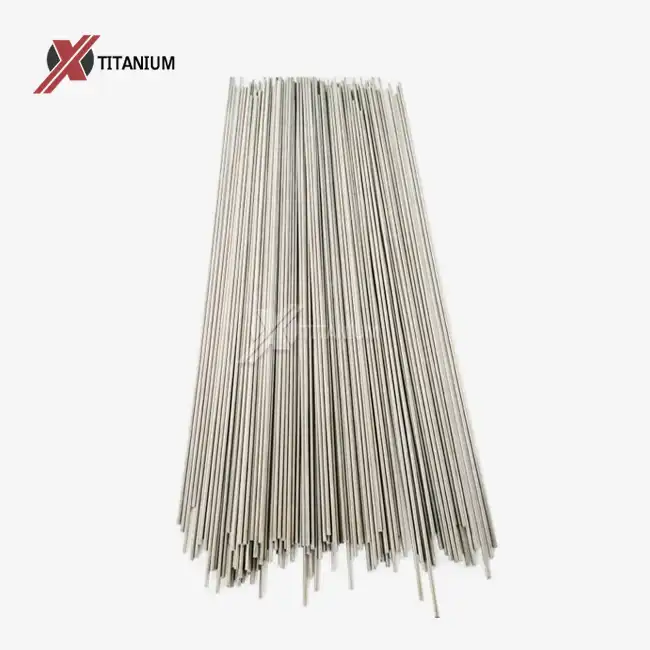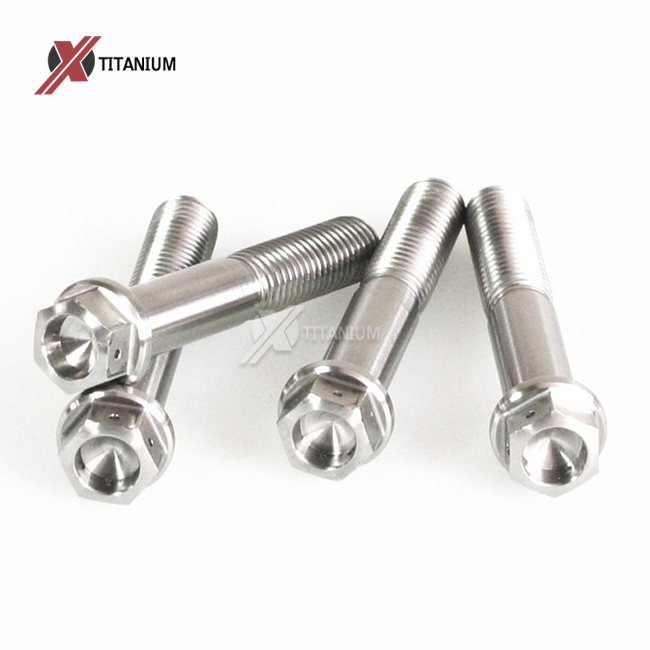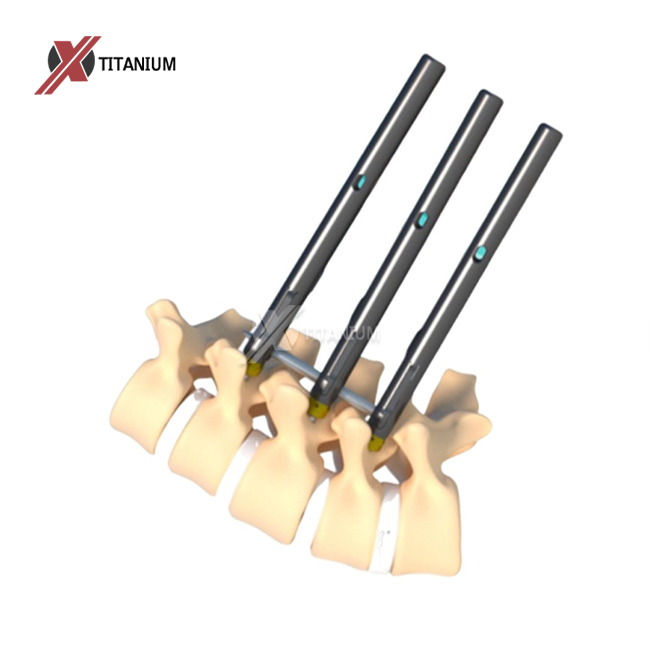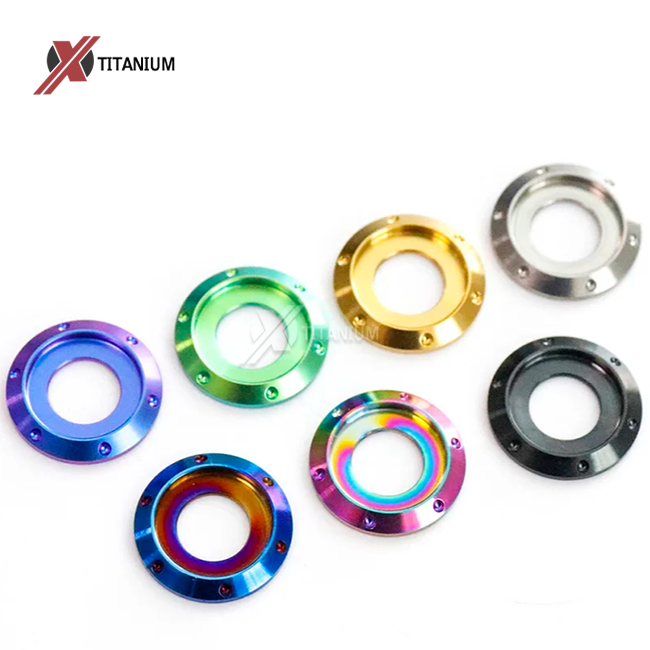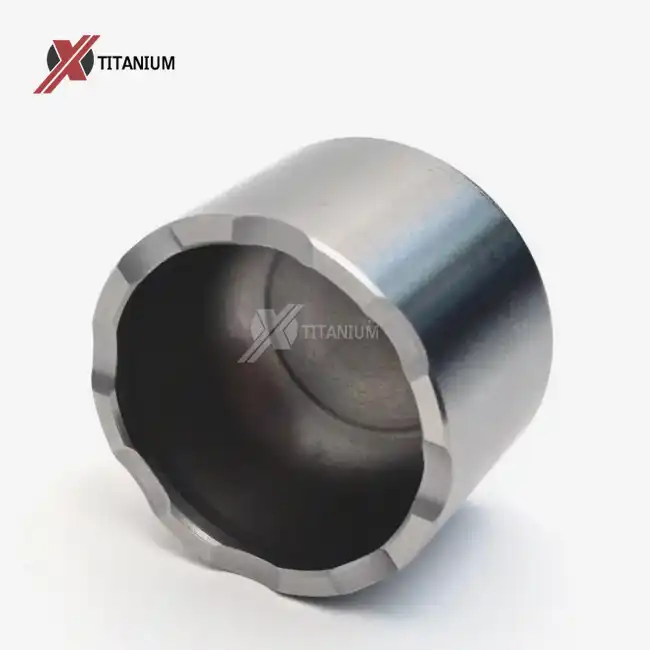Composition and Properties of Straight Titanium Wire
Straight titanium wire, also known as commercially pure (CP) titanium wire, is composed of nearly 100% titanium. This high-purity composition results in a material with remarkable properties that make it indispensable in various industries.
Chemical Composition
CP titanium wire typically contains minimal amounts of impurities, such as oxygen, nitrogen, carbon, and iron. The purity levels are classified into different grades (Grade 1, 2, 3, and 4), with Grade 1 being the purest and Grade 4 having slightly higher impurity content. This high purity contributes to the wire's excellent corrosion resistance and biocompatibility.
Mechanical Properties
Straight titanium wire exhibits a unique combination of strength and ductility. While it may not be as strong as some titanium alloys, it offers superior formability and workability. The tensile strength of CP titanium wire typically ranges from 240 to 680 MPa, depending on the grade and processing method. Its relatively low elastic modulus (around 105 GPa) provides flexibility, making it ideal for applications requiring bend resistance.
Corrosion Resistance
One of the most notable features of straight titanium wire is its exceptional corrosion resistance. The formation of a stable, self-healing oxide layer on the surface protects the wire from various corrosive environments, including saltwater, acids, and industrial chemicals. This property makes it highly valuable in marine, chemical processing, and medical applications.
Characteristics and Applications of Titanium Alloy Straight Wire
Titanium alloy straight wire is a more complex material, incorporating additional elements to enhance specific properties. These alloys are designed to meet the demanding requirements of industries that require higher strength, improved heat resistance, or specialized performance characteristics.
Alloy Composition
Titanium alloys used for wire production typically include elements such as aluminum, vanadium, molybdenum, or zirconium. The most common alloy for wire applications is Ti-6Al-4V, which contains 6% aluminum and 4% vanadium. Other alloys may be tailored for specific properties, such as improved weldability or enhanced corrosion resistance in particular environments. These compositions make straight titanium wire ideal for demanding industrial, aerospace, and medical applications where precision and durability are critical.
Enhanced Mechanical Properties
The addition of alloying elements significantly improves the mechanical properties of titanium alloy straight wire. Ti-6Al-4V, for instance, can achieve tensile strengths up to 1000 MPa or higher, making it substantially stronger than CP titanium wire. This increased strength is coupled with good ductility and fatigue resistance, making titanium alloy wire suitable for high-stress applications in aerospace, automotive, and industrial sectors.
Heat Resistance
Many titanium alloys exhibit improved heat resistance compared to pure titanium. This characteristic allows titanium alloy straight wire to maintain its mechanical properties at elevated temperatures, making it valuable in applications such as jet engine components or high-temperature chemical processing equipment.
Comparative Analysis: Straight Titanium Wire vs. Titanium Alloy Straight Wire
When comparing straight titanium wire and titanium alloy straight wire, several factors come into play:
Strength-to-Weight Ratio
While both types of wire offer excellent strength-to-weight ratios, titanium alloy straight wire generally outperforms CP titanium in this aspect. The higher strength of alloys allows for thinner wire diameters while maintaining or exceeding the load-bearing capacity of pure titanium wire.
Corrosion Resistance
Straight titanium wire holds the advantage in terms of overall corrosion resistance, particularly in highly aggressive environments. However, certain titanium alloys can be engineered to provide enhanced resistance to specific types of corrosion, such as stress corrosion cracking.
Workability
CP titanium wire is generally more ductile and easier to form than its alloy counterparts. This characteristic makes it preferable for applications requiring intricate shaping or bending. Titanium alloy wire, while less ductile, can often be processed to achieve fine diameters and precise tolerances.
Cost Considerations
Straight titanium wire is typically more cost-effective than titanium alloy wire due to its simpler composition and processing requirements. However, the higher performance characteristics of alloy wire can justify the increased cost in applications where superior strength or specialized properties are essential.
Application Suitability
The choice between straight titanium wire and titanium alloy straight wire ultimately depends on the specific requirements of the application. CP titanium wire excels in scenarios demanding excellent corrosion resistance and biocompatibility, such as medical implants or chemical processing equipment. Titanium alloy wire is often the preferred choice for high-stress applications in aerospace, automotive, and industrial sectors where enhanced mechanical properties are crucial.
Understanding these differences is vital for engineers, manufacturers, and procurement specialists when selecting the appropriate material for their projects. Both straight titanium wire and titanium alloy straight wire offer unique advantages, and the optimal choice depends on a careful consideration of performance requirements, environmental conditions, and economic factors.
Conclusion
In conclusion, the difference between straight titanium wire and titanium alloy straight wire lies primarily in their composition, mechanical properties, and specific application suitability. Straight titanium wire offers unparalleled corrosion resistance and biocompatibility, making it ideal for medical and chemical processing applications. On the other hand, titanium alloy straight wire provides enhanced strength and heat resistance, catering to high-performance needs in aerospace and industrial sectors.
The choice between the two depends on the specific requirements of the application, balancing factors such as strength, corrosion resistance, workability, and cost. Understanding these distinctions is crucial for making informed decisions in material selection for various engineering and manufacturing projects.
At Baoji Chuanglian New Metal Material Co., Ltd., we specialize in producing both straight titanium wire and titanium alloy straight wire to meet diverse industry needs. Our expertise in titanium processing ensures that we can provide high-quality products tailored to your specific requirements. Whether you need CP titanium wire for medical implants or high-strength titanium alloy wire for aerospace applications, we have the capabilities to deliver.
Frequently Asked Questions
What are the main applications for straight titanium wire?
Straight titanium wire is commonly used in medical implants, chemical processing equipment, marine applications, and various industrial components where corrosion resistance and biocompatibility are crucial.
How does the strength of titanium alloy straight wire compare to pure titanium wire?
Titanium alloy straight wire typically offers significantly higher strength compared to pure titanium wire, with some alloys achieving tensile strengths up to twice that of CP titanium.
Can titanium wire be welded?
Yes, both straight titanium wire and titanium alloy wire can be welded, although special techniques and equipment are often required due to titanium's reactivity with oxygen at high temperatures.
Is titanium wire magnetic?
No, titanium wire, whether pure or alloyed, is not magnetic. This non-magnetic property makes it useful in applications where magnetic interference must be avoided.
Why Choose Baoji Chuanglian New Metal Material Co., Ltd. for Your Titanium Wire Needs?
As a leading straight titanium wire supplier and manufacturer, Baoji Chuanglian New Metal Material Co., Ltd. offers unparalleled expertise in titanium processing. Our state-of-the-art factory utilizes advanced techniques such as cold rolling, hot rolling, and annealing to produce high-quality titanium wire. We provide customized surface finishes, including bright, polished, and sandblasted options, to meet diverse industry requirements. With rigorous quality control measures and a commitment to innovation, we ensure that our titanium products exceed international standards. For premium straight titanium wire and titanium alloy straight wire, trust Baoji Chuanglian to deliver excellence. Contact us at info@cltifastener.com or djy6580@aliyun.com to discuss your specific needs.
References
1. Lutjering, G., & Williams, J. C. (2007). Titanium (2nd ed.). Springer-Verlag Berlin Heidelberg.
2. Donachie, M. J. (2000). Titanium: A Technical Guide (2nd ed.). ASM International.
3. Peters, M., Kumpfert, J., Ward, C. H., & Leyens, C. (2003). Titanium Alloys for Aerospace Applications. Advanced Engineering Materials, 5(6), 419-427.
4. Rack, H. J., & Qazi, J. I. (2006). Titanium alloys for biomedical applications. Materials Science and Engineering: C, 26(8), 1269-1277.
5. Boyer, R. R. (1996). An overview on the use of titanium in the aerospace industry. Materials Science and Engineering: A, 213(1-2), 103-114.
